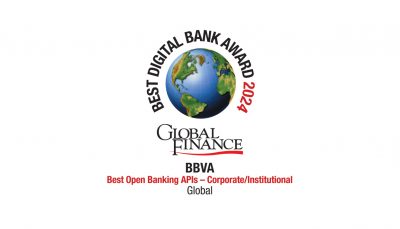Open banking is a relatively new and promising banking tool. Its advantages benefit borrowing entities, customers, and new suppliers alike, although its challenges are still far from being solved. What is open banking? What are the advantages and challenges? What is the situation in Spain?
What is open banking?
Open banking is a business model in which data can be exchanged in the financial ecosystem. This type of banking opens the doors to new opportunities and services and can be summarized as:
- The use of open APIs that allow third-party developers to create applications and services around the financial institution.
- Increased financial transparency options for account holders, ranging from open to private data.
Open banking represents a new mental and legal framework for the banking model. In Europe, it is based on the PSD2 regulation.
What are APIs?
The term API stands for Application Programming Interfaces. APIs are programming interfaces that allow a certain program to contact a second programming environment, i.e., they are bridges that connect two systems.
According to Albert Pla, Head of Corporate & SME eSales at BBVA Global Markets, APIs are the “core product of Open Banking.” This is the tool through which open banking is made possible—the basic building blocks of the API ecosystem.
José Manuel de la Chica, New Digital Business at BBVA, explains this using examples such as Uber or Airbnb, which have grown thanks to the implementation of APIs in different business processes, and how the financial world is doing the same.
The open banking era begins when APIs are opened to third parties through open platforms. This trend, regulated by regulations that protect the user, opens up certain banked data to developers designing the fintech world.
In this transformation, BBVA defends opening its data by creating an open platform,
BBVA API_Market, on which it offers its financial APIs to help companies, startups, customers, and developers who wish to improve their products and services and promote or create new business lines.
Advantages of open banking

01. Approving new products
Before PSD2, banking had obvious limitations when it came to creating new products. Opening up application development to third parties brings more players and more possibilities into play—the emergence of a new market.
02. Increased competition
This market is a new fulcrum for competition between companies, which in turn is a great accelerator of innovation. Competition leads to securer, higher-quality products, and services. Increased competition also divides the market into more segments.
03. Customized products and services
One of the advantages of open banking is the emergence of mass customized services, something that used to be an oxymoron. Now, the same API is able to customize a product to the customer’s needs. Being the same product, it is optimized per person.
04. Cost and price reduction
The cost is the negative item required to maintain a service, and the price is the economic amount asked for providing it, generally after adding profit. With lower costs, it is possible to reduce the price of many banking services.
05. They facilitate financial inclusion
Through APIs, it is possible to bring banking to places where it was not present before and create products that democratize access to banking services. Financial inclusion is one of the greatest consequences of opening up banking.
06. Improved customer experience
Open banking has made it possible to simplify customer-facing interfaces. It is even possible to see banking and banking products from different banks and financial services in a single vertical.
07. Increased user security
Increased user security comes from several sides: market regulation through PSD2, accountability to the CNMV, and competition between companies seeking to provide the best service.
08. Sustainable commitment
Open banking helps companies and individuals make much more sustainable decisions. For example, by making it possible to calculate and know the carbon footprint of each person or organization, which is key to becoming aware of the impact that daily activities have on the environment.
BBVA is the first bank in Spain to calculate the carbon footprint of all its customers, a service available within the mobile app.
The challenges of open banking
There are several barriers to developing and penetrating open banking within the fintech and banking universe. While it is true that the main challenge, that of regulation, has already been solved, there are still some challenges:
Low user confidence
Mistrust of the new and of change is a universal constant. As more early adopters enter this new market, others will lose their fear and see the personal and business benefits of APIs and open banking. Trust is the critical factor for the implementation of APIs.
High demand for qualified programmers
One of the bottlenecks in application development (including APIs and banking services) is the lack of qualified programmers. Their scarcity is palpable worldwide and in all sectors that depend on them. And, given security needs, open banking cannot resort to no-code or low-code solutions for non-critical services such as websites.

Integrating regulation into cybersecurity
Just because something is technically feasible or has permission to be implemented does not mean that it is not a challenge to protect its operation. The attack surface of a system grows exponentially as systems are connected. The vulnerability of the combined system using API “A+B” is greater than the respective isolated vulnerabilities of A or B.
Call effect for developers
Although the market (number of customers) is growing within open banking, it is still limited. This acts as a barrier for development companies. As with mobile apps, market saturation can be a disincentive to devote resources to these developments.
Open banking in Spain
Spain is a country of opportunities for open banking and the API ecosystem, which Deloitte calls “an untapped opportunity.” The fact that the Bank of Spain is already making informative communications indicates that this is a growing sector.
Traditional banks cannot miss the boat, especially considering that one of the barriers to entry in these markets is the reluctance to hire new players. Customers are looking for banking companies they already trust, and banks such as BBVA are very well positioned in this area. Especially if they receive recognition in this regard.
BBVA was a pioneer both in open banking and in the design of exchange platforms, such as BBVA API_Market. Open banking is the clear future and successor to traditional banking, in the same way, that currency succeeded the gold standard. In a world where data is highly valuable, and customers can share it to improve their performance, open banking is the tool of the future.













